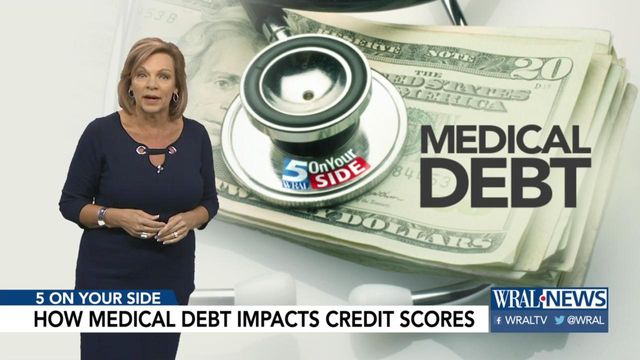5 On Your Side's tips to prevent medical debt from ruining your credit
Medical debt can have a big impact on a person's credit scores, but there are things patients should do to avoid having their credit ruined.
Posted — UpdatedAnytime debt collectors become involved, it can ruin a consumer's credit score.
But for many people who amass medical debt, a car accident, complications of the flu or even a heart attack that puts them on the road to financial ruin.
That's because any of those issues can land a person in the hospital for days, months or years.
Bill Townsend's heart condition forced him to spend 10 days in the hospital and left him with $130,000 in medical bills.
The 59-year-old comic book store owner thought his insurance would cover most of it.
For months, he tried to navigate the $76,000 gap between what his insurance would pay and what the hospital billed him.
"It was basically like I was in the middle between the two warring factions (of) the insurance company and the hospital," he said.
He was turned over to a collections agency, the first step to blowing up his credit.
"Something I really don't like is uncertainty, and I was living with it 24/7," he said. "The idea that I didn't know how this was going to end: Am I going to lose my business? Am I going to lose my house?"
Medical debt can cause major damage to your finances if left unresolved, but new rules can help.
The three big credit agencies, Equifax, Experian and TransUnion, are now required to wait 180 days, or about 6 months, before putting an unpaid medical bill on your credit report.
Consumers disputing a claim should let the hospital or doctor's office know more time is needed to sort things out.
And if the insurance company ultimately pays a bill, the patient's credit report must reflect that payment.
Townsend ultimately hired a medical billing advocate to help him resolve his bill.
It wasn't cheap, but it saved his sanity.
"It's just like a great weight had been lifted off," he said.
And Consumer Reports advises consumers to request an installment plan if possible, instead of using a high-interest credit card to pay down medical debt.
Related Topics
• Credits
Copyright 2024 by Capitol Broadcasting Company. All rights reserved. This material may not be published, broadcast, rewritten or redistributed.






